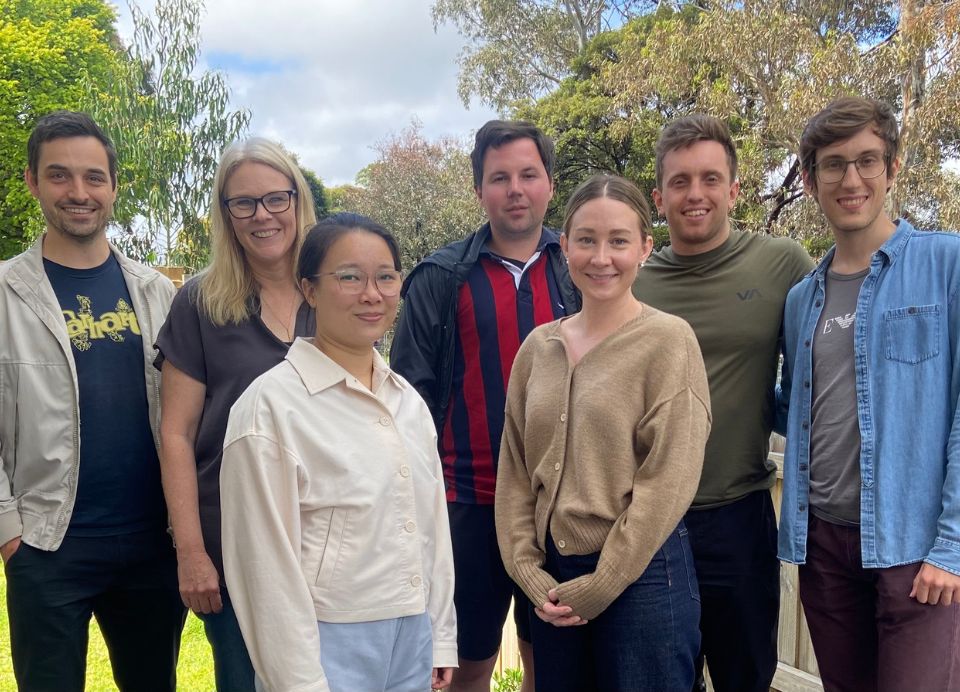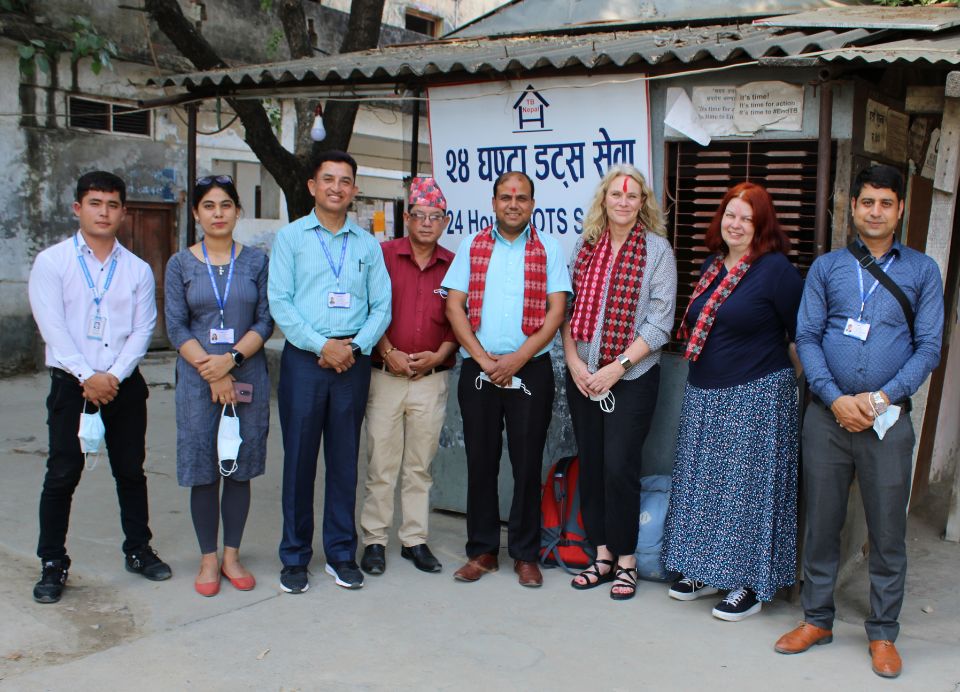22 Mar 2024
Towards tuberculosis elimination with the power of genomics
Tuberculosis (TB) is a critical global health challenge, with the World Health Organization (WHO) estimating that a quarter of the world's population has been infected with Mycobacterium tuberculosis, the bacteria responsible for TB. Despite being curable and preventable, TB persists as a major infectious killer, ranking second only to COVID-19 in terms of global impact. In 2022 alone, 10.6 million people were infected with TB worldwide and, tragically, nearly five people lost their life to the disease every two minutes of that year.
The Doherty Institute is home to researchers, clinicians, academics, scientists, advocates and staff, including from the Victorian Tuberculosis Program, who work and collaborate with experts around the world to improve prevention, early detection, effective treatment strategies, in an effort to eliminate the pervasive disease.

Members of the Dunstan Lab
A prominent figure in the field of TB research, University of Melbourne Associate Professor Sarah Dunstan, a Principal Research Fellow and a Lead of the Global Health cross-cutting discipline at the Doherty Institute, explained that TB is a disease of global importance that lacks effective tools for its control and elimination.
“In resource-limited countries where TB is rife, diagnosis can often be slow or inaccessible, presenting a significant barrier to timely intervention,” she said.
“Treatment is very long and the current vaccine shows limited effectiveness, further compounding the challenges faced in controlling the spread of the disease. This makes disrupting TB transmission a laborious effort.”
Associate Professor Dunstan’s work focuses on harnessing genomic technology to advance our understanding of TB. By leveraging this technology, Associate Professor Dunstan seeks to uncover crucial insights for the development of innovative tools for the control and ultimate eradication of TB.
“In our research, we’re looking to better understand the host and pathogen biology in TB to open the doors to new basic and translational research, to advance discovery and provide momentum for new diagnostic, vaccine and therapeutic development,” said Associate Professor Dunstan.
"We use bacterial genomics to examine the diversity and spread of the TB bacteria, as well as the emergence of drug resistance. We also look into human genomics to identify susceptibility genes and gain understanding on the mechanisms of protective immunity against TB.”
Associate Professor Dunstan’s research primarily focuses on Asia, where two thirds of the global burden of TB resides.
“Our genomic research is providing groundbreaking insights into how TB transmits in Vietnam and Nepal, how TB co-evolved with humans and how it historically spread across Asia. Our work is also identifying new links in the human genetic susceptibility to TB in Asian populations.”

Target TB Project members in Nepal (project partner, Birat Nepal Medical Trust)
The emergence of drug-resistant strains of Mycobacterium tuberculosis significantly worsens the already complex problem of TB control and treatment. Researchers are developing tests to rapidly ascertain the antimicrobial resistance profile of the bacteria directly from clinical specimens. This will significantly improve treatment of patients with tuberculosis by promptly identifying any mutations linked to resistance to all TB first- and second-line antibiotics.
In Victoria, a team led by the Royal Melbourne Hospital’s Professor Justin Denholm, Medical Director of the Victorian Tuberculosis Program and University of Melbourne’s Professor Ben Howden, Director of the Microbiological Diagnostic Unit Public Health Laboratory (MDU PHL), both at the Doherty Institute, used genome sequencing to identify clusters, transmission patterns and drug resistance mutations for TB. An important step in low-burden settings such as Australia, where it can assist with efficient contact tracing and surveillance. (Dorji T, et al. Whole genome sequencing of drug-resistant Mycobacterium tuberculosis isolates in Victoria, Australia. The International Journal of Infectious Diseases (2023). https://doi.org/10.1016/j.ijid.2023.11.010)
Hear from the experts and the community at a World TB Day event at the Doherty this Friday, 22 March 2024.


